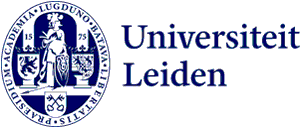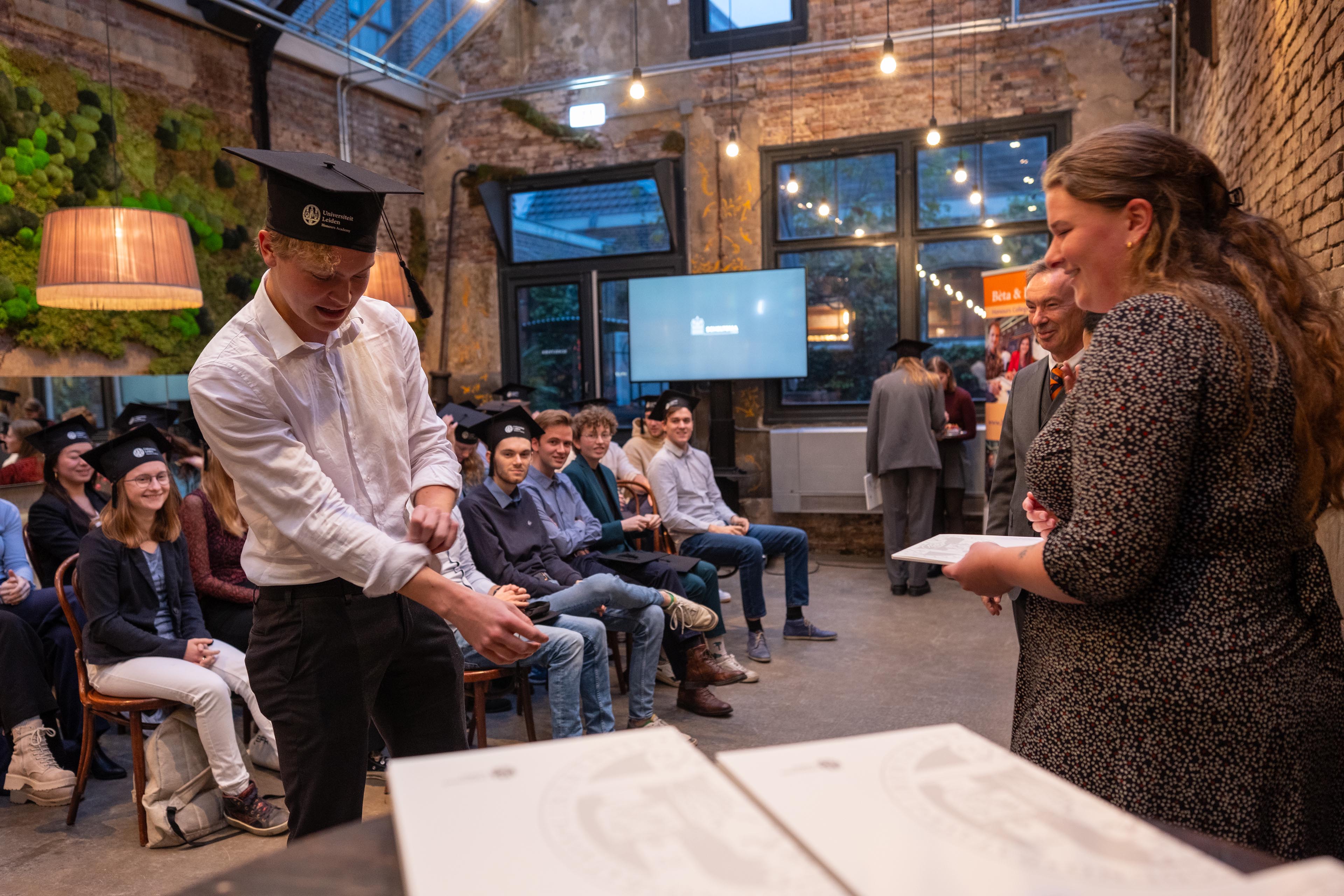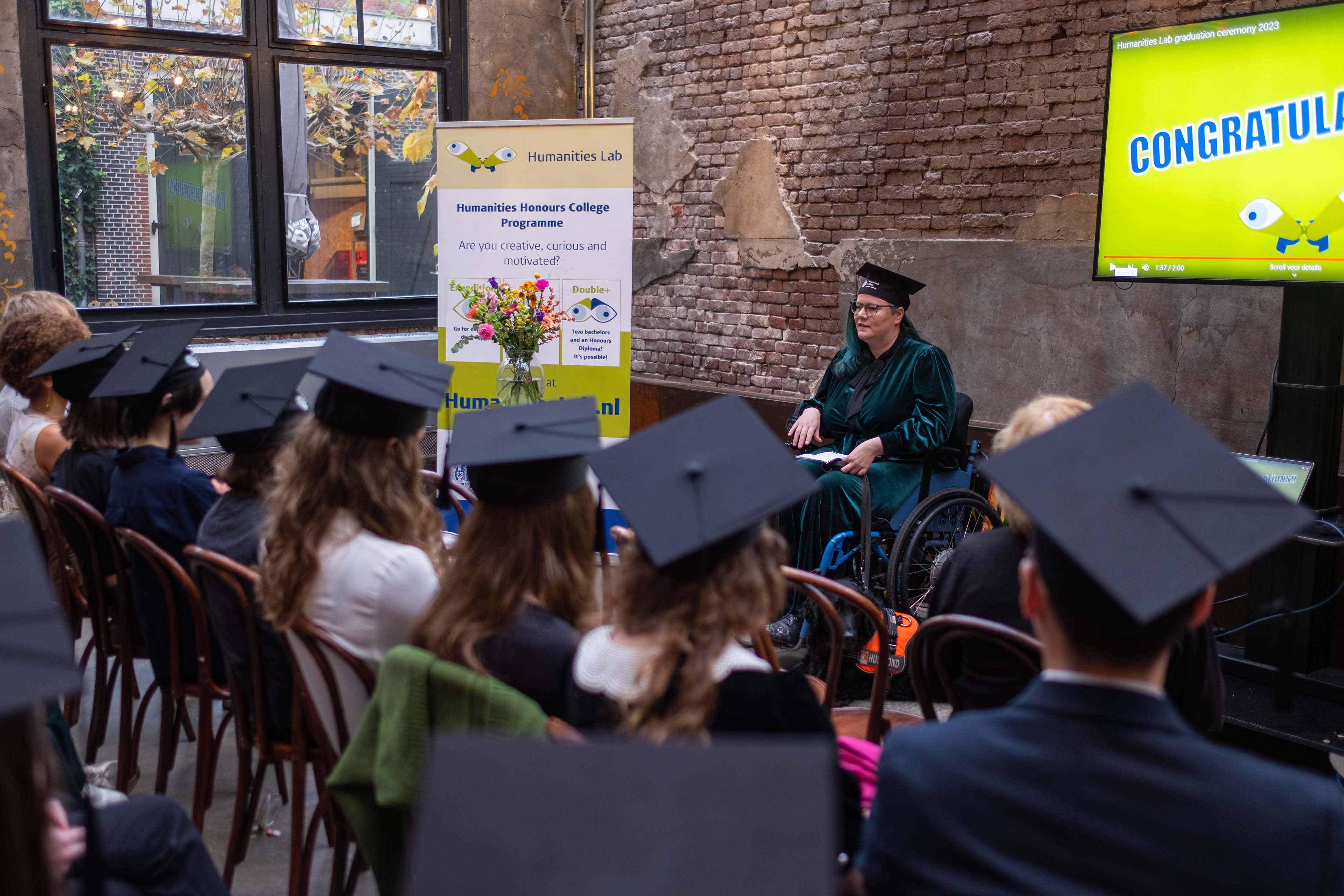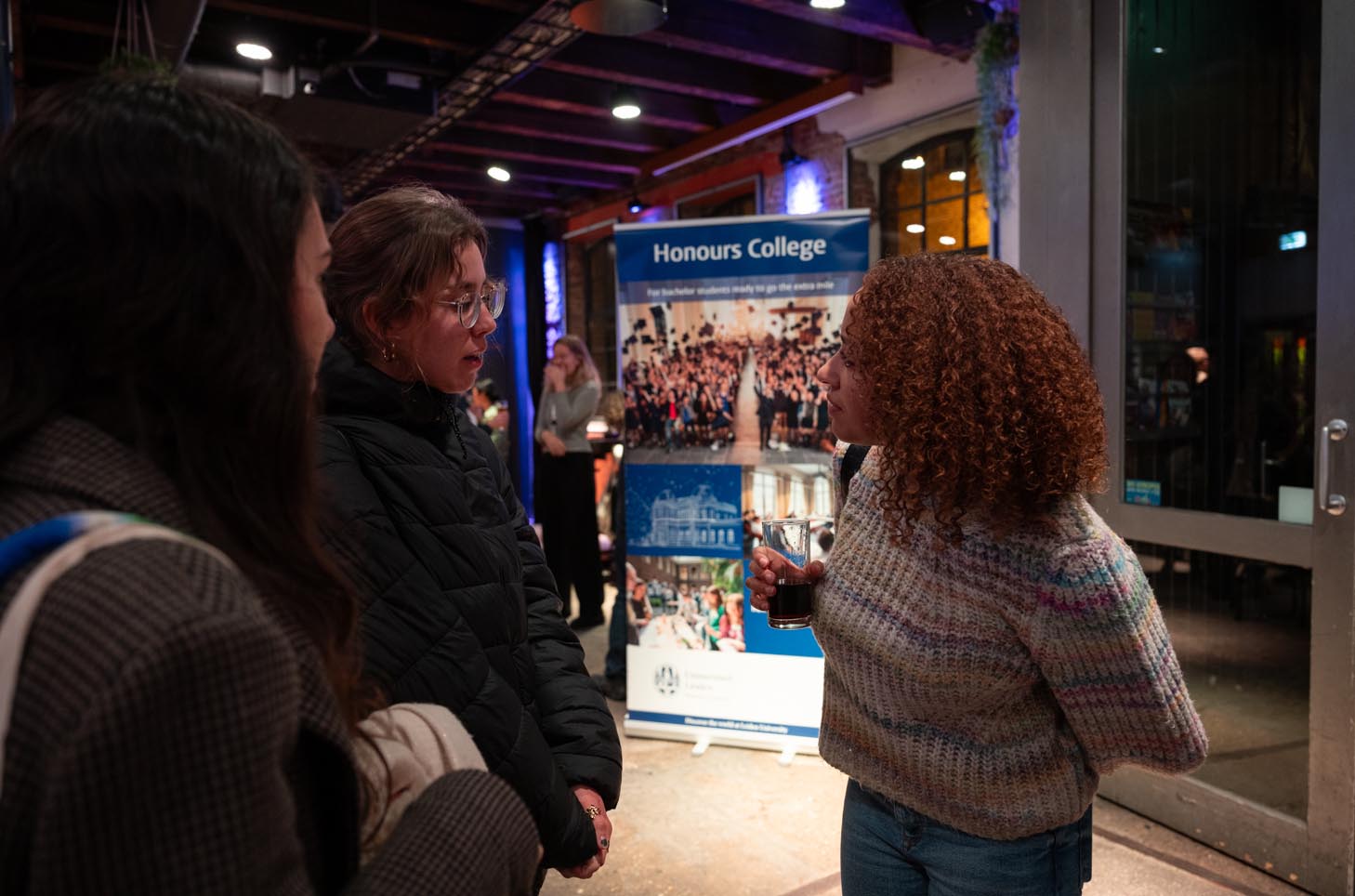
‘Honours helps you face your future with more confidence’
After three years of courses, exercises, debating and reflecting, Honours College students received their certificate during a festive ceremony. Even more than with the certificate as such, attendees were pleased with the way Honours enables students to deal with an increasingly complex world.
Students pose for a selfie in their best suit or dress, they are busy trying on their graduation caps and looking around the room to see in which row their friends are sitting. During the plenary opening of the ceremony, education developer Bram Hoonhout asks the students to close their eyes and think back to their most valuable honours memory. His goal is to make clear that ‘Honours College is about more than a certificate, it is about the experiences you gather and the people you meet. Those enable you to face your future with more confidence.’

Turbulent world
This certificate ceremony is extra special because it marks the ten year anniversary of the Honours Academy. Maartje van der Woude (42), professor of sociology of law, is the honours representative for the Honours College Law and was there at the founding of the programme. ‘During my time as a student, Honours didn’t exist, but there were interdisciplinary courses on a certain topic. I really loved this type of education. When the Honours College started to take shape, I immediately wanted to be a part of this – because these courses had brought me so much as a student.’
Van der Woude thinks the added value of Honours lies for a big part in its interdisciplinary character. ‘Within our track for example, we don’t just look at a topic through the lens of law or criminology, but also through other perspectives. This should happen a lot more in regular bachelor courses as well. We – as an educational institution – have a responsibility to provide students with the tools to develop themselves in such a way that they can stand strong in this complex and turbulent world.'

‘Unique courses’
After the opening ceremony, the students part ways to different rooms where they receive their certificate with the students from their own track. Two of those students are Vito (22) and Christa (22) from the track Governance and Global Affairs. They share how honours courses have contributed to their personal development as students.
‘A great thing about Honours are the unique courses you get to follow, like the course Negotiations LAB where I learned to negotiate’, shares Vito. ‘This course immediately came to mind when we were asked to think about our best honours experience. They taught us the theoretical aspect of negotiating, but we also actually practiced a lot, which made the lessons very practical and interactive. It was also a great way to gain experience in public speaking.’
‘That is definitely one of the benefits of Honours’, says Christa, ‘you learn to speak up. The lessons force you out of your comfort zone and stimulate you to participate. This lowers the threshold and makes you feel more confident and comfortable in giving your opinion.’

Personal skills
Developing these kinds of personal skills is something teacher Jelle Buijs (27) and coach Maruša Mohar (25) from the track Science, Society and Self value greatly. ‘In our lessons we want to do more than just discuss problems such as climate change or inequality’, shares Jelle. ‘We want to work on the personal development of students by training human skills which are often undervalued, but very important, such as active listening or self-reflection.’
Maruša endorses this. ‘We want to stimulate students to focus on their own capacities. By knowing these, they can approach societal problems in a more realistic way. It is utopic to think you can efficiently tackle all the challenges in the world. Coming to the realization of “what I am good at” is essential in lowering the pressure students often feel.’
Sharing experiences
During the drinks after, the students share their Honours experiences. Thomas (23), honours student of Humanities Lab: ‘So, my fondest memory was definitely when I took a class on how to deal with the legacies of slavery in North America. It was very interesting for me because I'm from Brazil, so we also have a lot of legacies of slavery that still persist in our society. Seeing how they dealt with it, or rather how they did not deal with it, really resonated with me.’
‘What I also loved about that class is that you could talk to people that are not studying anything related to humanities. Like, on my first course, I met someone who was doing biology, so we got her perspective on things. I think the course was a combination of a lot of the positive things that Honours can bring to you.’
Text: Iris Kole
Photos: Eelkje Colmjon, Buro JP & Eric van den Bandt
Mail the editor





